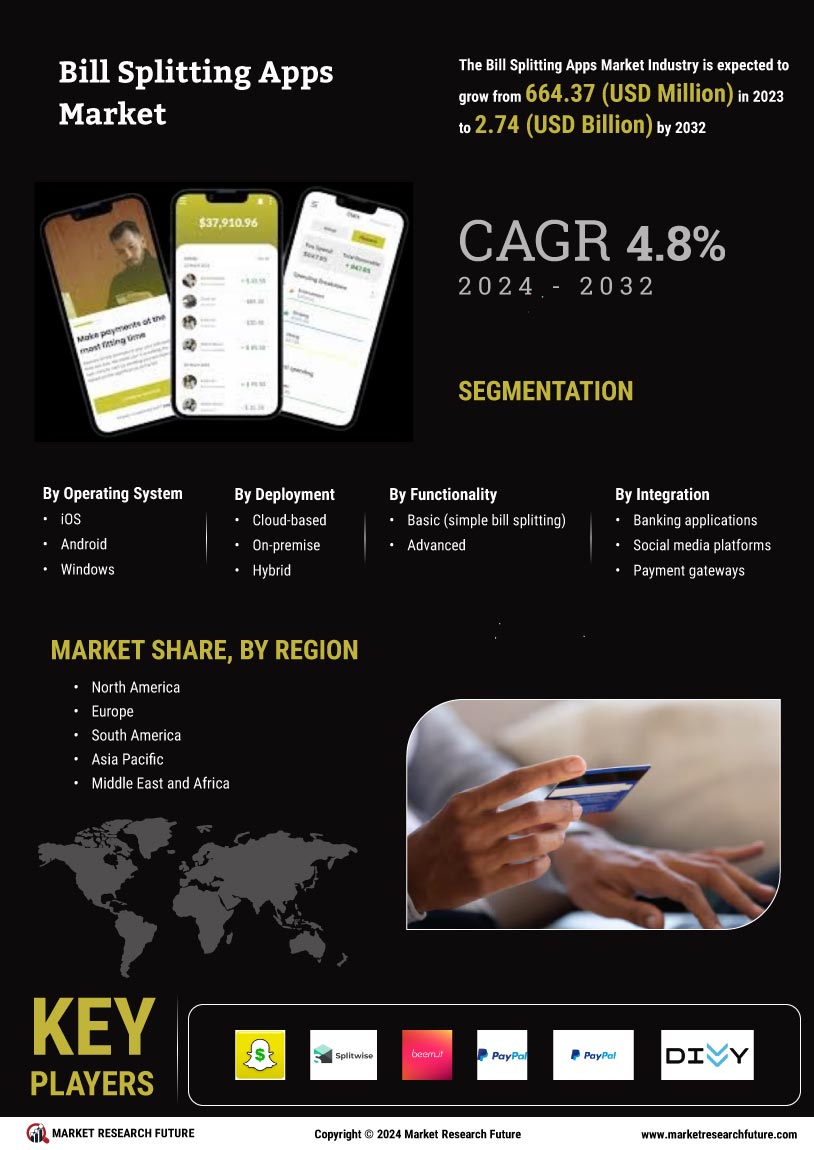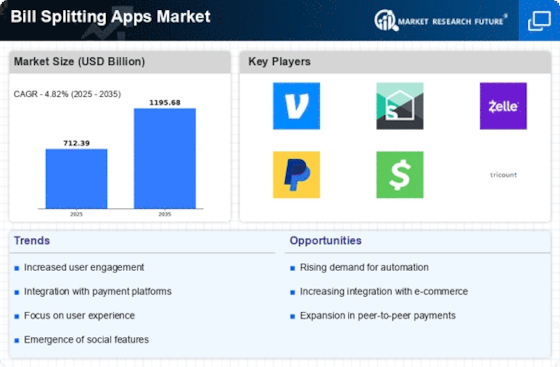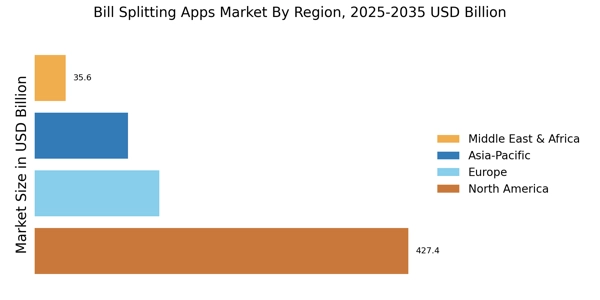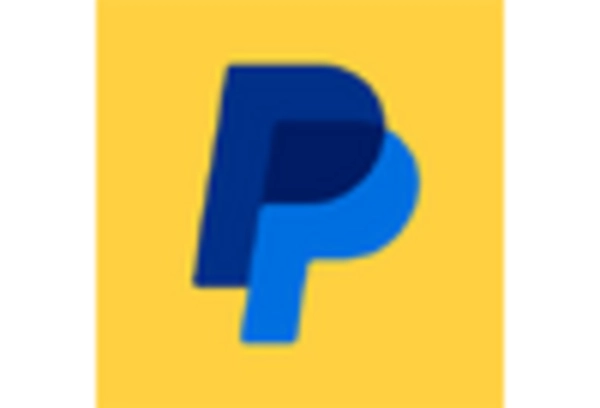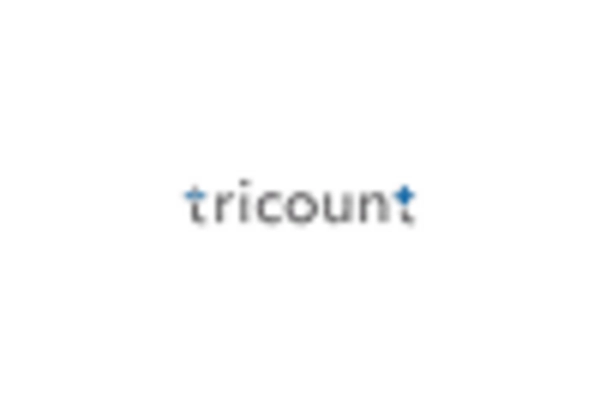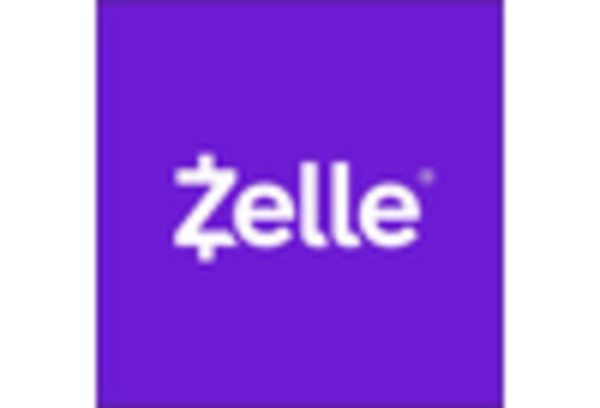Growth of Social Dining Experiences
The Bill Splitting Apps Market is witnessing a transformation in social dining experiences, which is contributing to the growth of bill splitting applications. As dining out becomes a more communal activity, particularly among millennials and Gen Z, the need for efficient bill management has intensified. Data suggests that nearly 70% of young adults prefer dining with friends, leading to an increased reliance on apps that facilitate easy splitting of expenses. This trend indicates a shift towards shared experiences, where the convenience of bill splitting apps enhances social interactions. As restaurants and cafes increasingly promote group dining, the demand for effective bill management solutions is expected to rise, further propelling the growth of the bill splitting apps market.
Increased Focus on Financial Literacy
The Bill Splitting Apps Market is also influenced by an increased focus on financial literacy among consumers. As individuals become more aware of their financial management needs, there is a growing interest in tools that facilitate better expense tracking and budgeting. Educational initiatives aimed at improving financial literacy are encouraging users to adopt bill splitting applications as a means to manage shared expenses effectively. This trend suggests that as consumers become more financially savvy, they are likely to seek out solutions that not only simplify transactions but also provide insights into their spending habits. Consequently, the bill splitting apps market may see a rise in users who value financial management features alongside basic splitting functionalities.
Rise of Peer-to-Peer Payment Platforms
The Bill Splitting Apps Market is significantly impacted by the rise of peer-to-peer payment platforms. These platforms have revolutionized the way individuals transfer money, making it easier to settle shared expenses. Recent data indicates that peer-to-peer payment transactions have increased by over 30% in the past year, reflecting a growing acceptance of digital payment methods. This trend is particularly appealing to younger consumers who prefer quick and efficient ways to manage their finances. As peer-to-peer payment solutions become more integrated with bill splitting applications, the market is likely to experience accelerated growth. The convenience of instant transfers and the ability to split bills seamlessly positions these apps as essential tools for modern financial interactions.
Expansion of E-commerce and Online Transactions
The Bill Splitting Apps Market is benefiting from the rapid expansion of e-commerce and online transactions. With the rise of digital platforms, consumers are engaging in more online purchases, often requiring collaborative payment solutions. Recent statistics reveal that e-commerce sales have seen a year-on-year increase of over 15%, indicating a shift in consumer behavior towards online shopping. This trend necessitates the use of bill splitting applications, particularly in scenarios where multiple individuals contribute to a single purchase. As e-commerce continues to flourish, the integration of bill splitting functionalities within online shopping platforms is likely to enhance user experience and drive further adoption of these applications.
Increasing Demand for Seamless Payment Solutions
The Bill Splitting Apps Market is experiencing a notable surge in demand for seamless payment solutions. As consumers increasingly seek convenience in their financial transactions, the adoption of bill splitting applications has risen significantly. Recent data indicates that the market for mobile payment solutions is projected to grow at a compound annual growth rate of approximately 20% over the next five years. This trend is driven by the growing preference for cashless transactions, particularly among younger demographics who prioritize efficiency and ease of use. Consequently, bill splitting apps that offer integrated payment functionalities are likely to capture a larger share of the market, as they cater to the evolving needs of consumers who desire quick and hassle-free financial interactions.
